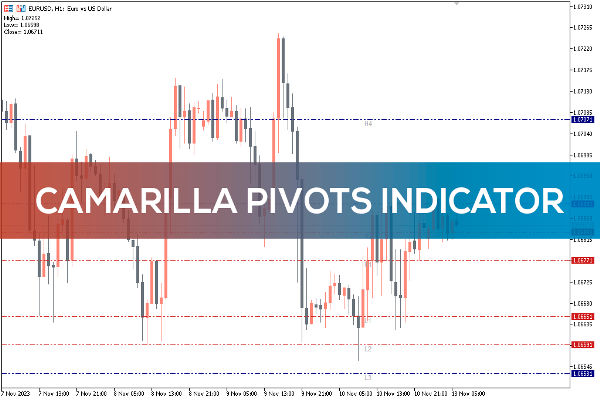A Beginners Guide to Stock Trading: What You Need to Know
Stock trading and investing in stocks is fun and a great way to be part of the financial markets and grow your wealth. Whether you want to make quick trades or invest for the long term, you need to know the basics to get started with confidence. In this guide we will break down what stock trading is, how it works and some tips for beginners.

What is Stock Market Trading?
Stock trading is buying and selling shares of publicly listed companies. These shares represent a part of a company and their value changes based on company performance, market trends and investor sentiment. Knowing the stock market basics is key for beginners to navigate investing effectively.
There are two types of stock trading:
Day Trading: Buying and selling stocks within the same day, often to make money from short-term price movements.
Swing Trading: Holding stocks for a few days or weeks to make money from medium-term trends.
The Stock Market
The stock market is a live platform where shares of publicly listed companies are bought and sold. It allows investors to own a part of a company and earn returns through dividends or capital appreciation. Also known as the equity market, the stock market is an important part of a country’s economy.
At its simplest, the stock market operates on the principle of supply and demand. When more investors want to buy a stock than sell it, the price goes up. When more investors want to sell a stock than buy it, the price goes down. Various factors affect these price movements including economic indicators, company performance, industry trends and global events.
To participate in the stock market you’ll need to open a brokerage account with a reputable online broker. This account will allow you to buy and sell stocks, exchange-traded funds (ETFs), mutual funds and other investment products. The New York Stock Exchange (NYSE) and NASDAQ are two of the largest stock exchanges in the world, where companies list their shares and investors can trade them.
Why Trade Stocks?
Stock trading offers many benefits for beginners to grow their wealth:
High Liquidity: Stocks can be bought or sold quickly, to get in or out of a position.
Growth Potential: Historically the stock market has delivered good returns.
Diverse Opportunities: With thousands of companies to choose from, you can pick sectors and industries that interest you.
But be careful with individual stock picks, success stories often hide the pitfalls and risks.

How to Start Stock Trading as a Beginner with a Brokerage Account
Here’s a step-by-step guide:
Learn the basics before you start trading, and learn the stock market basics. Understand terms like shares, dividends and market capitalization. Learn how stock prices are affected by earnings reports, news events and global trends.
Choose a Reputable Brokerage: Select a brokerage that fits your trading needs. Look for user-friendly platforms with low fees, educational resources and good customer support. Brokerage accounts can have auto transfers and investments, making it easier to manage your portfolio. Also consider using stock trading apps that have stock analysis tools, on-the-go alerts and fast order execution.
Set a Budget: Start with an amount you can afford to lose, as trading involves risk. Don’t use money meant for essentials.
Create a Trading Plan: Decide how you will trade stocks. Will you be day trading or long-term trading? A plan will prevent impulsive decisions.
Practice with a Demo Account: Many brokers offer demo accounts where you can practice trading with virtual money. This will build your confidence and allow you to fine-tune your strategy before using real money.
Monitor Your Trades and Stay Informed: Keep an eye on your investments and stay up to date with market news. Tools like stock screeners and market analysis reports will help you find opportunities and avoid risks.
Investment Options for Beginners
As a beginner, you need to understand the investment options available in the stock market. Here are a few:
Individual Stocks: Buying shares of individual companies like Apple or Amazon allows you to invest in a company’s future. This requires a good understanding of the company’s financials, industry trends and competitive landscape.
Mutual Funds: A mutual fund collects money from multiple investors to invest in a basket of stocks, bonds or other securities. This is a convenient way to invest in many assets with one investment, perfect for those who don’t want to pick individual stocks.
Exchange-Traded Funds (ETFs): Like mutual funds, ETFs offer diversification but trade on an exchange like individual stocks. They are more flexible and often cheaper, that’s why many investors like them.
Index Funds: Index funds are a type of mutual fund that tracks a specific stock market index like the S&P 500. They offer broad diversification and have lower fees than actively managed funds, perfect for long-term investors.

Risk and Emotions
Trading in the stock market involves risk and managing that risk is key to achieving your financial goals. Here are some ways to manage risk and emotions:
Diversification: Spread your investments across different asset classes, sectors and geographies to reduce risk. A diversified portfolio will help you cushion the impact of a single investment’s poor performance.
Risk Assessment: Know your risk tolerance and adjust your portfolio accordingly. Knowing how much risk you can take will help you make better investment decisions.
Stop-Loss Orders: Set stop-loss orders to limit your losses if a stock falls below a certain price. This will protect your investments from big downturns.
Emotional Control: Don’t make impulsive decisions based on emotions like fear or greed. Focus on your long-term investment goals and strategy and stick to your plan even during market volatility.
Paper Trading: Consider paper trading or using stock market simulators to practice trading with virtual money before using real money. This will allow you to fine-tune your strategy and build your confidence without risking your capital.
By understanding the stock market, exploring investment options and implementing risk management strategies, beginners can set themselves up for success. Always research, stay informed and consult a financial advisor if needed.
Mistakes to Avoid
To be successful in stock trading avoid:
Emotional Trading: Don’t make decisions based on fear or greed. Stick to your plan.
Not Researching: Always research a stock before buying. Don’t rely on tips or rumours.
Overtrading: Too many trades means unnecessary fees and losses.
No Diversification: Don’t put all your money in one stock. Spread your investments to reduce risk.
Knowledge of personal finance is key to making informed decisions and avoiding these mistakes.
Conclusion
Stock trading can be intimidating but with the right mindset, it’s a fun ride. Learn continuously, stick to your plan and be patient.
Remember, every pro was once a newbie. Take it one step at a time and soon you’ll have the confidence and skills to make informed trading decisions.
Disclaimer: This material is for general information purposes only and is not intended as (and should not be considered to be) financial, investment, or other advice on which reliance should be placed. No opinion given in the material constitutes a recommendation by EBC or the author that any particular investment, security, transaction, or investment strategy is suitable for any specific person.









